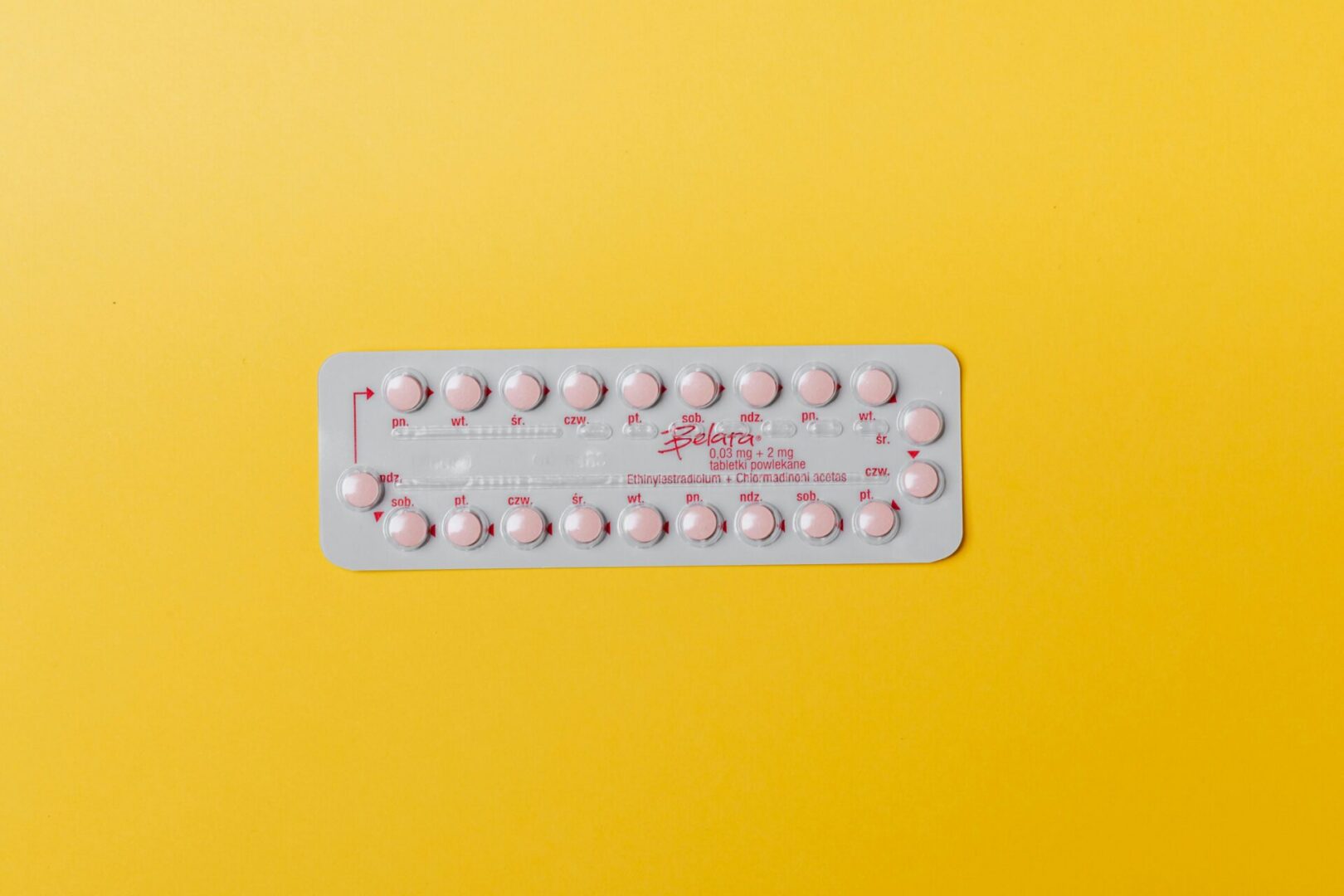Legislation needed to protect the right to contraception and safe abortion
Written by Olivia Nater | Published: September 26, 2024
This week marks both World Contraception Day (September 26) and International Safe Abortion Day (September 28) — observance days to raise awareness of the importance of access to contraception and safe abortion care. Unfortunately, hundreds of millions of women around the world still lack access to both, but existing legislation, if implemented, could help enormously.
A global failure to protect reproductive health and rights
According to the UN, an estimated 257 million women, 218 million of them in low- and middle-income countries, have an unmet need for modern contraception, which puts them at high risk of unintended pregnancy.
Many women faced with an unwanted pregnancy live in countries or areas with limited or even no access to safe abortion. As a result, approximately 45 percent of all abortions worldwide are carried out unsafely, without help from a qualified professional and/or in an environment that doesn’t meet minimal medical standards. An estimated 39,000 women die each year from unsafe abortions, and millions suffer from complications.
Even in the United States, state abortion bans imposed after the reversal of Roe v. Wade in June 2022, which eliminated the constitutional right to abortion, are causing a surge in preventable maternal deaths. In recent weeks, at least two maternal deaths in Georgia have been linked to the state’s abortion restrictions. An analysis by the Gender Equity Policy Institute found that the maternal mortality rate in Texas rose by as much as 56 percent between 2019 and 2022, which the Institute attributes to the state’s enactment of a strict (and at the time, unconstitutional) six-week gestational ban in September 2021, prior to the full ban implemented post-Roe.
The U.S. government could enact policies to remove barriers to contraception and safe abortion domestically and internationally, and there are several existing bills that would do just that, but they face stiff opposition in these highly partisan times. Let’s take a look at the relevant legislation.
1) Bills aimed at protecting reproductive rights abroad
 The Global HER Act
The Global HER Act
The Global Health, Empowerment, and Rights Act (H.R.1838 / S.1098) is intended to permanently repeal the harmful Global Gag Rule aka Mexico City Policy. The Global Gag Rule blocks federal funding for foreign non-governmental organizations (NGOs) that provide abortion services, counseling, or referrals, or that advocate to decriminalize abortion, even when those activities are supported with non-U.S. funding. Since its introduction in 1984 by the Reagan administration, the Global Gag Rule has been reinstated by every Republican president, and repealed by every Democratic one. Under Trump, the Global Gag Rule was expanded to encompass the vast majority of U.S. bilateral global health assistance. President Biden rescinded the policy shortly after taking office in January 2021, but lingering consequences of the funding cuts remain, often referred to as the “chilling effect.”
Reinstatement of the Global Gag Rule by a future president is all but guaranteed, which is why Congress needs to pass the Global HER Act. The Global HER Act would amend the Foreign Assistance Act so that no future president could unilaterally impose the Global Gag Rule, in effect permanently repealing it and putting an end to a 40-year political football.
What’s the status of the Global HER Act?
The Global HER Act has been introduced three times in both the House of Representatives and in the Senate but has never received a vote in either house. The current versions were introduced in the House on March 28, 2023, and in the Senate on March 30, 2023. As of today, the bill has 172 cosponsors in the House and 50 cosponsors in the Senate.
Abortion Is Health Care Everywhere Act
The Abortion Is Health Care Everywhere Act (H.R.1723 / S.929) is another bill designed to repeal a harmful foreign assistance policy, the Helms Amendment, which has been in effect since 1973. The Helms Amendment blocks foreign assistance funds from being used “to pay for the performance of abortion as a method of family planning or to motivate or coerce any person to practice abortions.” Despite its stated aim of restricting abortion for family planning purposes, it has been interpreted by every presidential administration as a complete ban on funding abortion care, even in cases of rape, incest, and threat to the pregnant person’s life.
The Abortion Is Health Care Everywhere Act would amend the Foreign Assistance Act so that it explicitly allows U.S. foreign assistance funds to be used to provide comprehensive reproductive health care, including abortion.
What’s the status of the Abortion Is Health Care Everywhere Act?
The current version of the Abortion Is Health Care Everywhere Act was introduced in the House of Representatives and in the Senate on March 22, 2023. As of today, the bill has 163 cosponsors in the House and 24 cosponsors in the Senate. When the bill was first introduced by Rep. Jan Schakowsky in the House in March 2021, it was the first time that legislation had ever been proposed to repeal the Helms Amendment. A Senate version followed in 2022. The bill has never received a vote in either house of Congress.
Support UNFPA Funding Act
The United Nations Population Fund (UNFPA) is the world’s largest provider of family planning and other reproductive health services, active in over 150 countries and territories covering 80 percent of the world’s population. UNFPA relies entirely on voluntary contributions from donor governments, intergovernmental organizations, the private sector, and foundations and individuals. The United States helped found UNFPA in 1969 and has remained a leading donor during supportive presidential administrations. U.S. support has fluctuated significantly over the years, however. Every Republican presidential administration since Reagan has withheld funding to UNFPA, and every Democratic one has resumed funding. Presidents who have revoked funding have justified their decision citing the Kemp-Kasten Amendment, under the false accusation that UNFPA runs coercive family planning programs in China.
 U.S. aid for international family planning (multilateral and bilateral) has been stagnant for the past 14 years due to a constant tug of war between the members of Congress wanting to increase funding, and those wanting to cut or eliminate it. Based on the size of the U.S. economy, the appropriate U.S. share of the annual funding required to address the unmet need for family planning in developing countries is $1.74 billion — almost three times higher than the current U.S. contribution.
U.S. aid for international family planning (multilateral and bilateral) has been stagnant for the past 14 years due to a constant tug of war between the members of Congress wanting to increase funding, and those wanting to cut or eliminate it. Based on the size of the U.S. economy, the appropriate U.S. share of the annual funding required to address the unmet need for family planning in developing countries is $1.74 billion — almost three times higher than the current U.S. contribution.
The Support UNFPA Funding Act (H.R.4166) does not call for specific increases to UNFPA support, but would prevent future administrations from cutting off funding. The current text “authorizes annual contributions to support the core functions and programs of the United Nations Population Fund for the five fiscal years following the bill’s enactment.”
What’s the status of the Support UNFPA Funding Act?
The current version of the Support UNFPA Funding Act was introduced in the House of Representatives and referred to the House Committee on Foreign Affairs on June 15, 2023. The bill has 123 cosponsors. A Senate companion bill has not yet been introduced.
2) Bills aimed at protecting reproductive rights domestically
EACH Act
The Equal Access to Abortion Coverage in Health Insurance (EACH) Act (H.R.561 / S.1031) aims to reduce economic barriers to abortion access by ending the Hyde Amendment (which has banned the use of any federal funds for abortion since 1977, with exceptions for rape, incest, and saving the pregnant person’s life) and related bans that make it difficult to access abortion care for people enrolled in federal health insurance programs.
The bill “requires federal health care programs (e.g., Medicaid, Medicare, and the Children’s Health Insurance Program (CHIP)) to provide coverage for abortion services and requires federal facilities to provide access to those services.” The EACH Act would also prevent the federal government from prohibiting coverage of abortion care by private health insurance plans offered in the insurance marketplaces under the Affordable Care Act.
What’s the status of the EACH Act?
The EACH Act was introduced in the House on January 26, 2023, and in the Senate on March 29, 2023. To date, the bill has 187 cosponsors in the House and 32 cosponsors in the Senate.
Women’s Health Protection Act (WHPA)
Due to the overturning of Roe v. Wade, abortion is currently illegal in 14 states, and 27 additional states have abortion bans based on gestational limits. The Women’s Health Protection Act (WHPA) (H.R.12 / S.701) is a critical bill that aims to re-establish nationwide protections for abortion. It would create a statutory right for health care professionals to provide abortion care and the right for their patients to receive care, free from bans and medically unnecessary restrictions that single out abortion.
What’s the status of WHPA?
The current version of WHPA was introduced in the Senate on March 8, 2023, and in the House on March 30, 2023. To date, the bill has 215 cosponsors in the House and 49 cosponsors in the Senate.
The House passed earlier versions of the bill twice, in September 2021 and July 2022. The Senate voted twice in 2022 on a motion to proceed but failed each time to achieve the 60 votes needed to overcome the filibuster.
Right to Contraception Act
The Right to Contraception Act (H.R.4121 / S.4381) would establish a statutory right for individuals to access all forms of contraception and for providers to provide contraception and related information.
The bill prohibits local, state, and federal government entities from infringing on these rights with laws that impede access to contraception or related information or services.
The Right to Contraception Act is especially relevant in light of the Supreme Court’s decision that overturned Roe v. Wade, with Justice Clarence Thomas writing in his concurring opinion that other constitutional rights should be “reconsidered” as well, including the use of contraceptives under Griswold v. Connecticut.
What’s the status of the Right to Contraception Act?
The current bill was introduced in the Senate on May 21, 2024, and in the House on June 14, 2024. The Senate voted on a motion to proceed on June 5, 2024, but it fell short of the 60 votes needed to advance to the Senate floor. The Right to Contraception Act currently has 208 cosponsors in the House and 49 in the Senate.
Make your voice heard
Everyone can help protect reproductive health and rights at home and abroad. Make sure you are registered to vote in the upcoming election, and contact your members of Congress to urge them to support these bills and enshrine the right to contraception and safe abortion in law!

